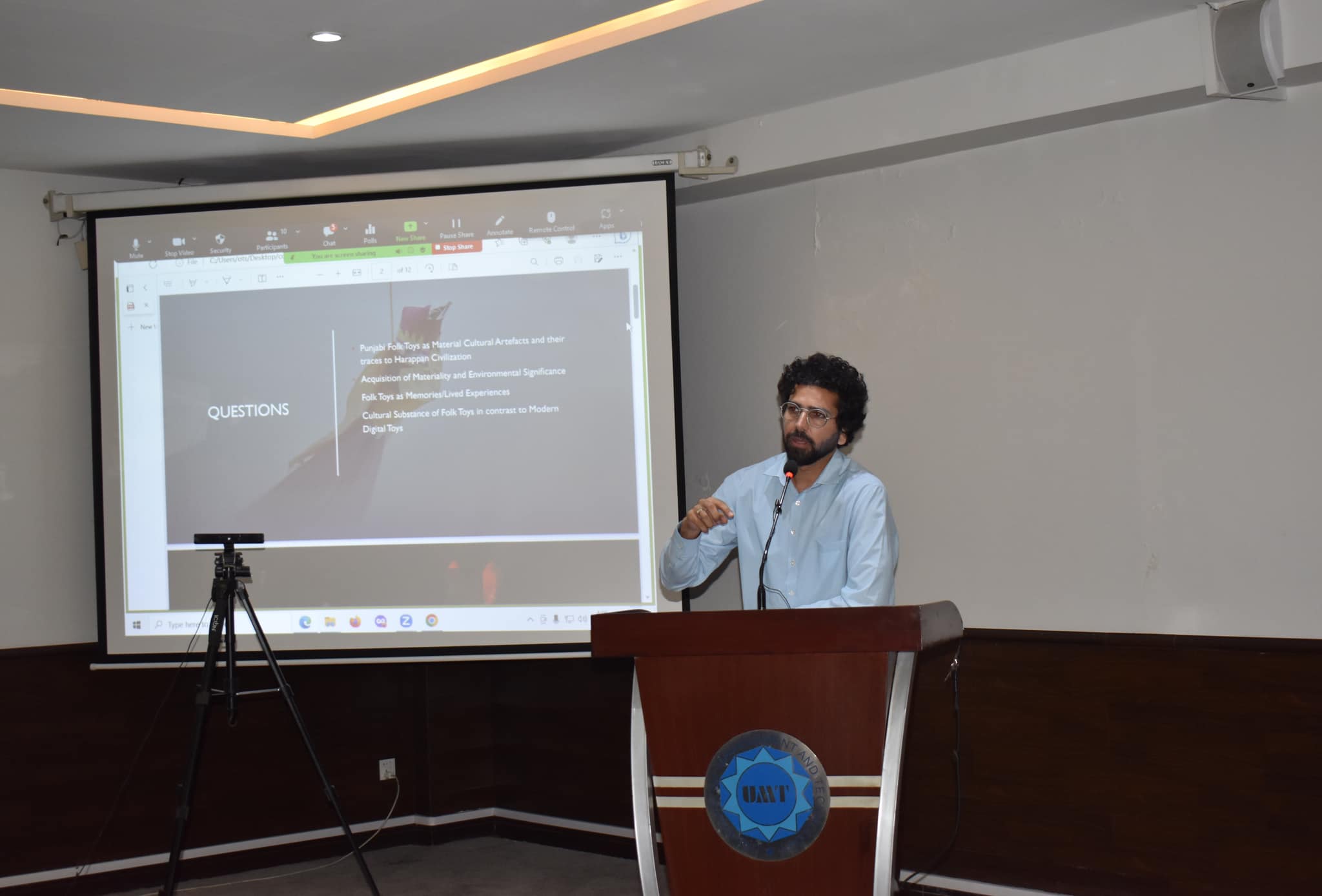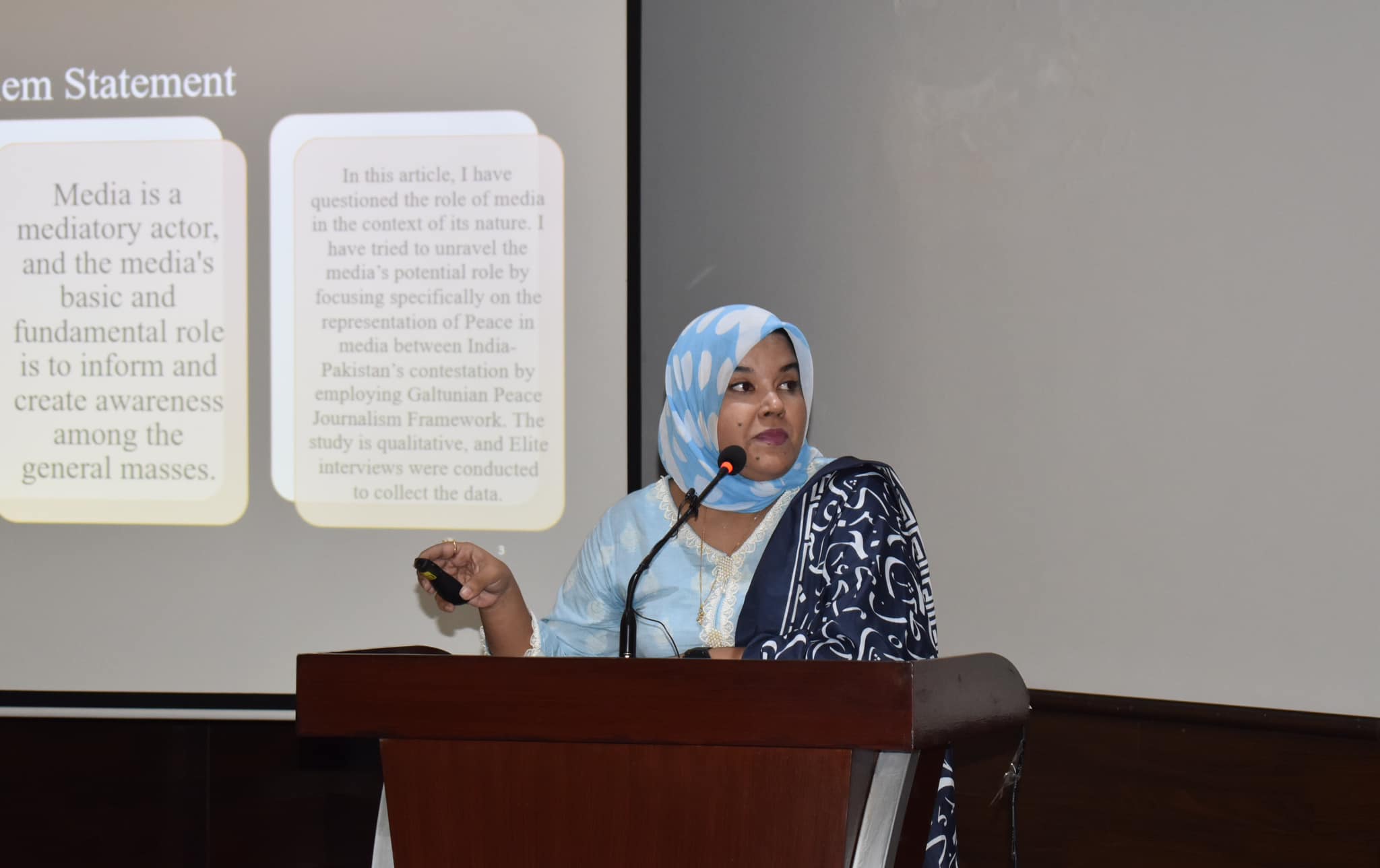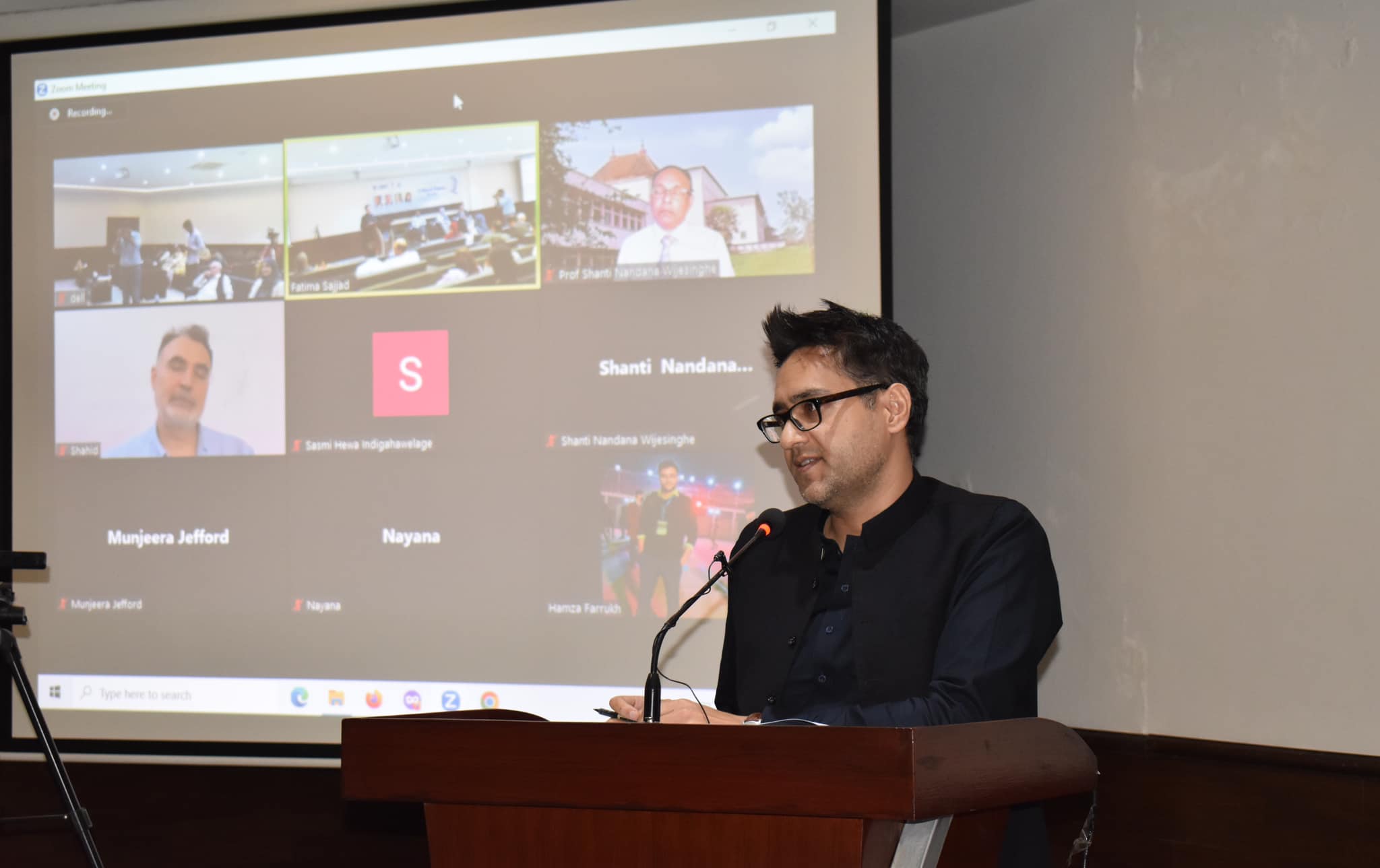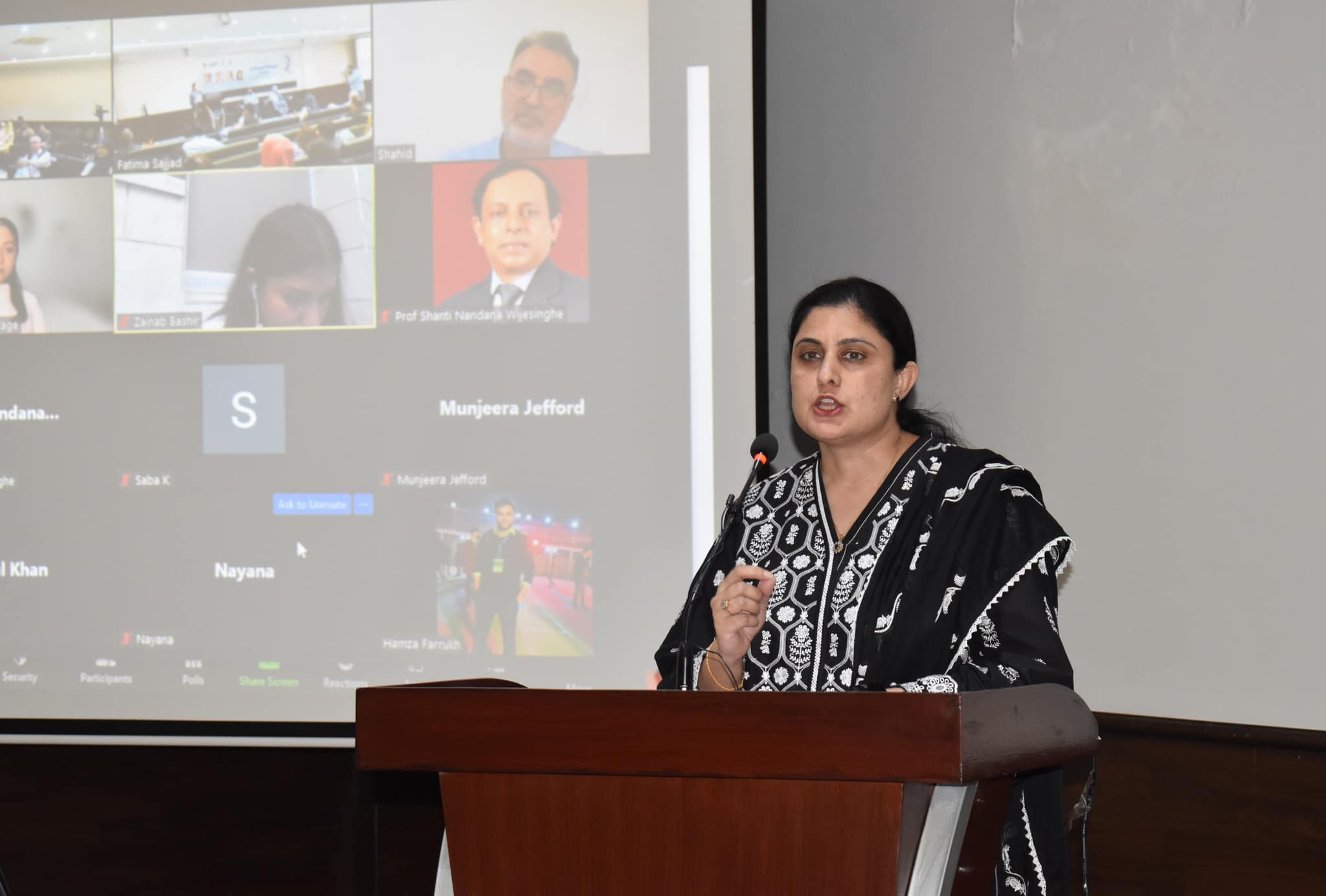Dr. Dayyab Gillani, the esteemed Director of Research at the National Counter Terrorism Authority (NACTA), took the podium at the First International Conference on Critical Peace Studies held at the University of Management and Technology (UMT) with an air of anticipation and scholarly rigor. With an impressive background in counter-terrorism and security studies, Dr. Gillani brought his wealth of experience to bear upon the enlightening papers presented by fellow scholars.
In the spotlight were three notable contributors to the conference, Dr. Sadia Nasir, Waqas, and Sundus Basharat, each of whom had delved into the multifaceted realm of critical peace studies. Dr. Gillani, known for his incisive analysis and comprehensive understanding of the subject matter, proceeded to share his reflections on the papers, shedding light on their significance, insights, and potential implications.
Dr. Sadia Nasir's presentation, infused with meticulous research and a nuanced approach, captivated the audience as she explored the intricate interplay between socio-political dynamics and the pursuit of peace. Dr. Gillani praised her for unravelling the intricate layers that often underlie conflicts, emphasizing how her work reminded scholars and policymakers alike of the need to address root causes rather than mere surface manifestations.
Waqas, a rising academic star, presented an exploration of the role of cultural diplomacy in fostering peaceful coexistence. Dr. Gillani lauded Waqas for highlighting the unifying potential of cultural exchange in an era when differences often take center stage. He underscored the importance of recognizing culture as a bridge-builder, not just an identifier, in the pursuit of lasting peace.
Sundus Basharat's paper, which delved into the socio-psychological aspects of conflict transformation, drew commendation from Dr. Gillani for its insightful examination of the human dimension in peacebuilding. He stressed the significance of understanding how perceptions, emotions, and narratives shape conflicts, and lauded Sundus for her thought-provoking insights into the power of empathy and communication as tools for conflict resolution.
Dr. Gillani's commentary on these papers underscored the synergy between their findings, highlighting the common thread of holistic, multi-dimensional approaches to peace. He underscored the urgent need for interdisciplinary collaboration and the integration of these research findings into real-world policy and practice. His articulation of the potential impacts of these studies resonated deeply with the conference attendees, inspiring renewed commitment to fostering critical peace studies as a transformative force in global affairs.
As Dr. Gillani concluded his presentation, the audience was left with a profound sense of optimism and a heightened awareness of the pivotal role that academic inquiry plays in shaping a more peaceful and just world. His eloquent discourse not only enriched the conference experience but also laid the groundwork for further exploration, collabora
 tion, and action in the dynamic field of critical peace studies.
tion, and action in the dynamic field of critical peace studies.
